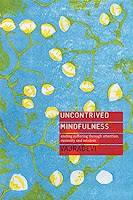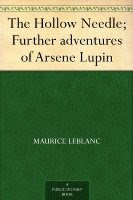Uncontrived Mindfulness: Ending Suffering through Attention, Curiosity and Wisdom
by Vajradevi
"The Buddha emphasized that happiness is found through understanding the mind rather than getting caught up in sense experience. This simple yet radical shift is key to a relaxed and uncontrived way of practising."Written by someone whom I know well, the book has really given me a better grasp of the meditation style that she teaches. I was aware that she's quite an advanced practitioner when I signed up for an online retreat that she led, and found it pretty hard going. But her writing is first class and explains many of the conundrums I was trying to unpick, while remaining utterly readable with some wonderful personal anecdotes that set everything in the context of imperfect human beings trying to do the best we can.
Selected English Short Stories (Nineteenth Century)
edited by Hugh Walker and H. S. Milford
"The stories of the nineteenth century are remarkable for their variety. They cover nearly the whole range of human interests and appeal to every emotion, from horror and fear to tenderness and pity. They touch heaven and earth and hell. They are dreamy or intensely active, domestic or adventurous."They were, indeed, short stories in English from the nineteenth century, including some notable authors (Walter Scott, Charles Dickens) and stories that I'd heard of and never read before (The Pit and the Pendulum, The Fall of the House of Usher.) But none was particularly memorable and many really didn't stand up to the test of time.
A Bend in the River
by V. S. Naipaul
narrated by Simon Vance
"When Salim, a young Indian man, is offered a small business in Central Africa, he accepts. As he strives to establish himself, he becomes closely involved with the fluid and dangerous politics of the newly-dependent state."Written and set in the 1970s in a country that's probably Congo/Zaire, it conveys some of the corruption and uncertainty of a situation in which power is transient and foreigners of all kinds, colonial and entrepreneurial, have little to bargain with if they end up on the wrong side of the power balance.
The Hollow Needle
by Maurice Leblanc
narrated by B. J. Harrison
"In a country manor, a terrible noise awakes the household. Downstairs, the estate’s secretary has been murdered. There are signs of a break-in, but everything appears to be in its proper place. What kind of thief would commit murder to steal nothing?"This seems to be about three different stories strung into one book. It's not bad, but after two of the stories I'd probably had enough. Sherlock Holmes is introduced as a character pitted against the hero, seemingly to demonstrate the superiority of the French criminal over the lesser English detective, which is amusing.
Harry Potter and the Goblet of Fire
by J. K. Rowling
"The summer holidays are dragging on and Harry Potter can't wait for the start of the school year. It is his fourth year at Hogwarts School of Witchcraft and Wizardry and there are spells to be learnt and (unluckily) Potions and Divination lessons to be attended."She has some great ideas, but this and the succeeding books suffer from bloat, where she includes all the ideas, not just what is necessary to keep the story moving. I'm sure the hardcore fans love it, but for me it just makes the book unnecessarily long. Thankfully no Quidditch in this one, though.
Moo
by Jane Smiley
narrated by Suzanne Toren
"Everyone at the large agricultural college dubbed Moo U. has an agenda. Whether it's massaging data, running secret experiments, or seducing the powerful, each person is dedicated to a plan."Oh dear. There are far too many characters, including students (customers), teaching and admin staff, and I didn't care about a single one of them, not even the huge white pig being raised in secret in an unused campus building, which dies after escaping during the demolition of the building. The book might be of particular interest to someone who has worked or taught at a university, ideally one in the mid-west of the USA with an agricultural faculty. But not to me.
Awake at Work
by Michael Carroll
"Work can often be frustrating. On the job we frequently face conflicts, difficult personalities, disappointing results - a variety of challenges and obstacles. The author, a Buddhist meditation teacher and a corporate executive, shares Buddhist wisdom on how to transform the common hassles and anxieties of life in the workplace into valuable opportunities for personal growth, heightened wisdom, and enhanced effectiveness."This was a present from someone who knew I was thinking of giving up the diabetes work and thought it would help, but I didn't get round to reading it before I gave up the diabetes work. I don't think it would have helped but it was a nice thought. I recognised a couple of scenarios where I could have tried using its advice, but honestly I think I had let my dissatisfaction grow too large and all-consuming, and I was lucky enough to be able to step away. I'm planning to pass the book on to another friend who is having a tough time at work.







No comments:
Post a Comment